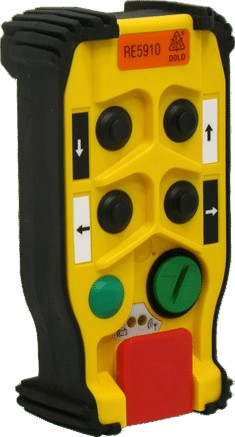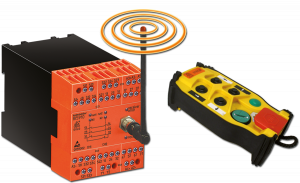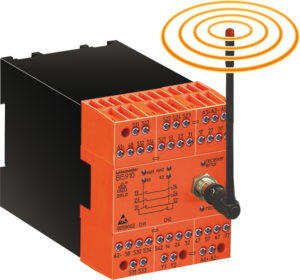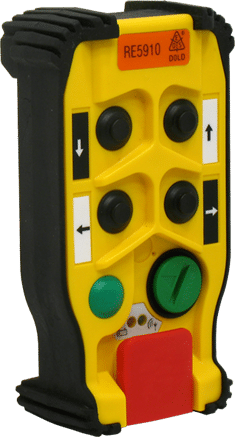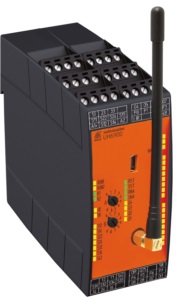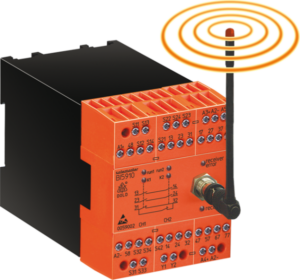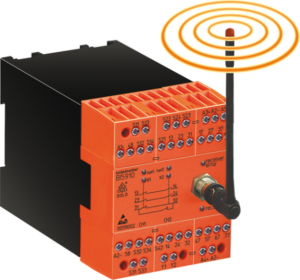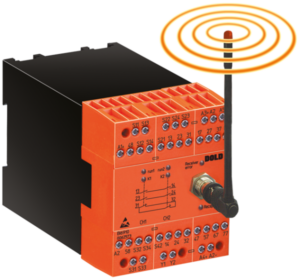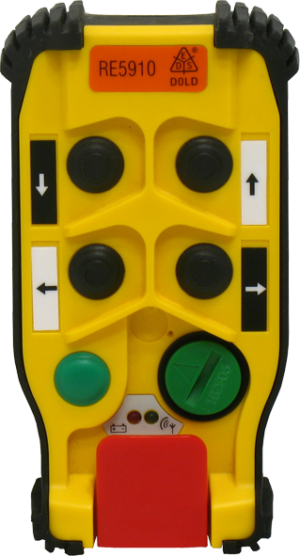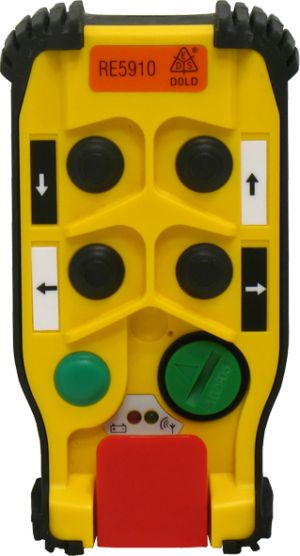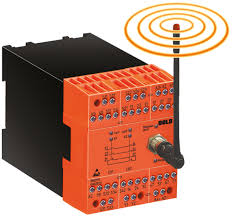Wireless Emergency Stop System – SAFEMASTER W Series
Understanding Wireless Emergency Stop Systems Definition and Purpose A Wireless Emergency Stop (E-Stop) system is a fail-safe, battery-powered emergency stop circuit that enables rapid shutdown…
Understanding Wireless Emergency Stop Systems
Definition and Purpose
A Wireless Emergency Stop (E-Stop) system is a fail-safe, battery-powered emergency stop circuit that enables rapid shutdown of industrial machinery in hazardous conditions. Replacing the need for conventional E-Stop systems, these wireless E-Stop switches ensure maximum machine safety across dynamic work environments such as assembly lines, material handling environments, and automated high-bay warehouses. Whether handheld or belt-mounted, these wireless kill switches enable quick remote stopping from safe distances, offering peace of mind and improved job mobility.
Key Components and Technological Features
Core elements of a wireless emergency stop system include an emergency stop transmitter, receiver, antenna extension cable, and a Vehicle Safety Controller or Safety Controller. They operate over secure GHz radio, radio remote, or even mesh configuration for redundant protection. Built-in features such as radio link status, indication of machine issues, standard E-Stop circuit compatibility, and 110-240 VAC power supply options ensure compatibility with a wide variety of machine applications. The handheld transmitter often includes function buttons, hour battery life support, and one-handed operation via 2-stage push buttons.
Importance of Wireless Emergency Stop Systems
Enhancing Workplace Safety
Wireless emergency stops add a new layer of personal safety devices in factories, allowing operators to shut down mobile machine systems, autonomous systems, or heavy equipment without needing physical contact. The result is enhanced safe automation and protection for people operating near pieces of equipment in motion.
Reducing Machinery-Related Injuries
Fast intervention minimizes equipment damage, mitigates potential hazards, and avoids material loss. With the push of a button, personnel can isolate a machine from operation, allowing remote emergency capabilities across large facilities and complex systems.
Compliance with Safety Standards (IEC 61508/SIL, ISO)
Compliant with ISO 13850, ISO 13849, IEC 62061, and IEC 61508, wireless E-Stops fulfill rigorous requirements for electrical safety. Systems like FORT’s Wireless E-Stop carry TUV Nord certification and meet Safety Rating benchmarks for reliable protection in industrial automation.
Types of Wireless Emergency Stop Systems
Portable Wireless Buttons
These lightweight wireless E-Stop units can be clipped to a waist belt, offering maximum mobility for operators. Models range from lightweight wireless E-Stops to larger belt-worn wireless E-Stops with extended battery life, designed for remote control frequency compatibility.
Fixed Mount Transmitters
Ideal for industrial controls and stationary zones, these devices support remote stop button functionality, infrared transmitter/receiver options, and integration with motion control devices. They are commonly found on control panels and safety systems.
Remote Control Solutions
Advanced solutions include GHz mesh remote control networks, allowing full coverage of mobile robots, mobile applications, and mobile machinery environments. Systems may also offer additional shutdown mechanisms and remote for supervisors to facilitate convenient operation.
Notable Products in the Market
SAFEMASTER W
The SAFEMASTER W series supports wireless E-Stop switch functions with Patented safety features. Compatible with standard E-Stop circuits, it offers peace of mind knowing you have full control of your industrial machinery.
Air-Eagle Series
Air-Eagle XLT and SR Plus equipment offer cutting-edge technology for remote stopping. Featuring antenna placement options, Universal AC Power, and remote & receiver kits, these are ideal for harsh manufacturing systems.
Radio Controlled Safety Module BI 5910
This module supports constant two-way communication, redundant monitoring, and high reaction time, ensuring instant peace during E-Stop conditions.
FORT Robotics’ Wireless E-Stop
FORT’s Wireless E-Stop works with precision control technologies and safe automation platforms. Offering frequency diversity, quick charging, and Antenna Extension Cables, it meets the needs of mobile robots and autonomous systems.
Features of Advanced Wireless E-Stop Systems
Seamless Integration with Existing Systems
Designed to interface with conventional safety circuits, these systems support configuration of machines for complex systems, often including control panel mounting, Anderson Control compatibility, and additional control functions.
Long-Lasting Power and Continuous Signal Monitoring
With rapid charging options, ion battery support, and capacity transmitter battery displays, systems can operate for up to 100 hours. Constant communication between transmitter and receiver ensures every wireless emergency is received without delay.
Long Operating Ranges and Robust Housing
Optimized antenna placement and GHz radio support allow these devices to function across 100+ meters, suitable for dynamic work environments and larger facilities. Units feature impact polymer housings with high IP ratings to resist industrial abuse.
How Wireless E-Stop Systems Work
Signal Transmission and Reception
Pressing the emergency stop button initiates a wireless kill switch transmission, monitored via radio link status. The receiver unit immediately triggers the emergency stop circuit or sends the signal to a Safety Controller.
System Activation and Deactivation Processes
Activating the E-Stop disables machine power and halts automation until a manual reset confirms safe conditions. Some systems allow programmable pre-defined start zones to ease automatic operation under strict safety protocols.
Maintenance and Troubleshooting
Routine tasks include inspecting buttons for radio, GHz radio frequency stability, and confirming function buttons. Firmware updates, Download DATASHEET, and Compliance Docs support long-term reliability.
Benefits of Implementing Wireless E-Stop Systems
Minimizing Operational Downtime
A remote control emergency stop helps prevent delays inherent in reaching fixed buttons, saving valuable time and avoiding costly hard-wiring across sprawling plants.
Enhancing Flexibility and Mobility
Operators can now react from any position, supporting maximum mobility, peace of mind, and non-tiring operation—especially during manual machine operation or oversight of autonomous systems.
Improving Response Time in Emergencies
Every second counts. Wireless safety offers fast-acting shutdowns, improves reaction time, and reduces the chance of frequency jamming by operating on diverse bands.
Case Studies and Real-World Applications
Wireless Emergency Stops are used globally in transportation, mining, construction, warehousing, agriculture, delivery services, and lawn care. From QUANTUM Transmitters in robotics to remote control units for forklifts and cranes, these innovative safety solutions are helping companies modernize their automation journey while prioritizing protection packages and safe operation.
